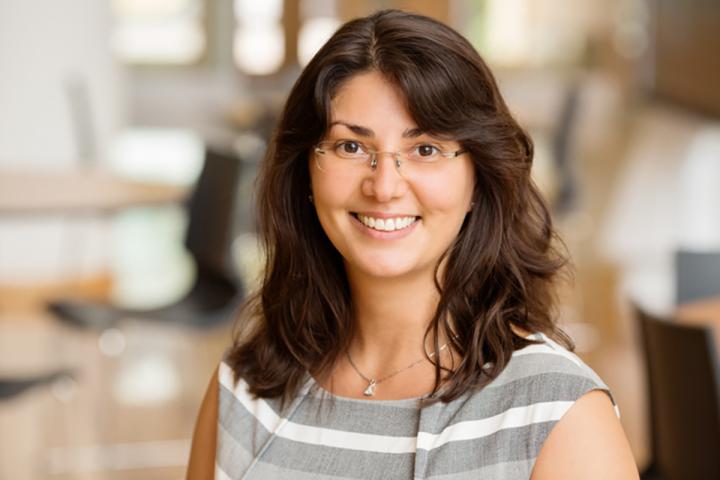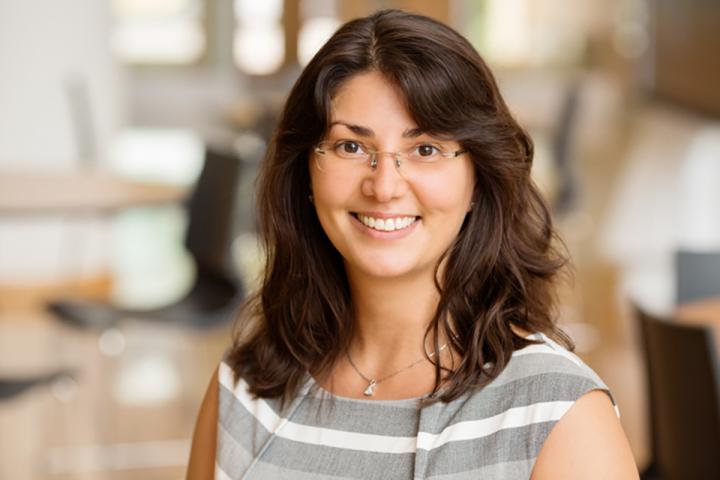
Credit: Photo by L. Brian Stauffer
With both tourism and casual "hookup" sex on the rise among college-age adults, there's an urgent need for gender-sensitive and age-appropriate sexual health campaigns that are tailored to young women's motivations for taking sexual risks while traveling, a new study suggests.
More than 850 young women participated in an online survey about their sexual experiences as tourists that was conducted by researcher Liza Berdychevsky, a professor of recreation, sport and tourism at the University of Illinois.
Although many researchers have characterized tourists who engage in sexual risk-taking as a homogenous population, "that is such a misconception," Berdychevsky said. "There are different kinds of sexual risk-takers, who perceive the risks involved with these experiences very differently and are motivated by various needs, preferences and tendencies. Once we understand that diversity, it can provide very important insights regarding how sexual health education campaigns can leverage it."
Building upon Berdychevsky's prior work in this area, the study investigated the links between females' sexual risk-taking and tourism, with the goal of developing sexual health messages tailored to the needs, perceptions and motivations of specific groups of women. The findings were reported in the Journal of Sex Research.
Women in the study reported that their primary motivations for taking sexual risks during travel included anonymity and desires for "safe" thrill-seeking and experimentation, Berdychevsky found.
Based on these motivations, and the women's perceptions of the physical/sexual, mental/emotional and social risks involved, Berdychevsky identified five clusters of sexual risk-takers. She then profiled each group by its members' sexual, psychological and demographic characteristics and their likelihood of engaging in sexually risky behaviors as tourists.
The largest group of young women in the study, 30 percent, were what Berdychevsky called "fun-seeking broad risk perceivers." While women in this group were very aware of the potential risks and reportedly had relatively low intentions of sexual risk-taking, their behavior was highly influenced by their alcohol consumption and the thrill-seeking, party-oriented atmospheres of tourist experiences.
"These women are vulnerable because they're highly susceptible to factors that facilitate sexual risk-taking, but they're not preparing for those risks. This could mean they don't carry contraception or don't consider the psychological implications of crossing certain boundaries," Berdychevsky said. "Sexual health messages for this group need to address their opportunistic approach to sexual risk-taking."
Slightly more than 25 percent of women who participated in the study fell into the cluster Berdychevsky called "diversely motivated broad risk perceivers."
"Women in this cluster were very aware of the potential risks, but were willing to take them because they saw tourist experiences as motivational triggers," Berdychevsky said. "If we were to tailor sexual health education messages to them, a potentially effective strategy might be to address their internal conflicts and help them reappraise why, if the stakes are so high, they are still willing to take these risks."
Women in the cluster called "anonymity- and empowerment-seeking risk disregarders" also were motivated to take sexual risks as tourists; however, they perceived the potential physical/sexual, mental/emotional or social risks as relatively low, Berdychevsky found.
Sexual health messages aimed at these tourists should heighten their risk awareness and address misconceptions such as illusions of anonymity, Berdychevsky said. These tourists might also benefit from reminders that their behavior could become public knowledge via the internet or the gossip of judgmental travel companions.
Young women who seek "safe" thrills or fantasy fulfillment through risky sexual encounters while on vacation may need to be prompted to examine the roots of these needs and reassess their beliefs that these needs can only be satisfied in anonymous, tourist contexts, Berdychevsky wrote.
Because many young people perceive themselves as invincible, they may not realize that when traveling, especially in other countries, their risks could be magnified by lack of access to the resources they would have at home, Berdychevsky said.
"As a tourist, you may not have your safety net with you – such as friends who have your back, the ability to speak the local language or an understanding of the local health care system if you need emergency contraception or testing for a sexually transmitted infection," Berdychevsky said.
Based on the dramatic differences in motivations and perceptions that exist among the various groups of young women, the findings suggest that issuing "one-size-fits-all, generic sexual health messages is suboptimal," Berdychevsky said.
"We need to come up with at least targeted – but hopefully tailored – sexual health education messages that should be more effective than generic messages at reducing the rates of sexual risk-taking and minimizing its negative consequences," Berdychevsky said. "Many participants probably would agree that trying to eliminate sex from tourist experiences altogether would be a futile effort."
###
Media Contact
Sharita Forrest
[email protected]
217-244-1072
@NewsAtIllinois
http://www.illinois.edu





